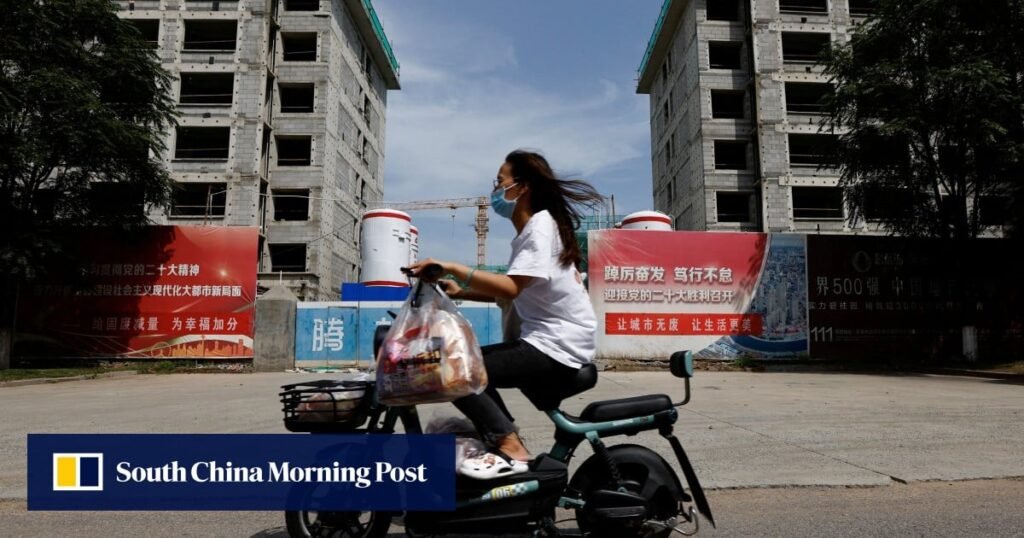China’s industrial output, though, rose by 6.7 per cent last month from a year earlier, with analysts attributing the increase to robust exports fuelled by soaring global demand.
“China’s economic data suggests further pressure on the economy from the deteriorating real estate sector and weakening consumption,” said Gary Ng, senior economist at Natixis Corporate and Investment Bank.
It has become an even more immediate task for the government to fend off uncertainties to boost confidence
Elsewhere, overall fixed-asset investment rose by 4.2 per cent in the first four months of the year, compared to a rise of 4.5 per cent in the January-March period, while China’s overall urban unemployment rate fell to 5 per cent last month, down from 5.2 per cent in March.
“The NBS’s attribution is partly correct, but that doesn’t change the fact that China’s overall consumption figures have been weak this year, mainly dragged by the real estate downturn,” said Larry Hu, chief China economist at Macquarie Capital.
“It has become an even more immediate task for the government to fend off uncertainties to boost confidence if it wants to meet the 5 per cent growth target,” he said.
“China’s economy showed weaker activities in April, but the overall economic recovery is still on track, and the current growth is still driven more by external demand,” said Ding Shuang, chief Greater China economist at Standard Chartered Bank.
“The impact of the US tariff hikes on China is not significant, since the US is not the top destination for these products, but such sanctions risk is likely to spread to other regions, including the EU,” Ding said.
Beijing is expected to add more developers to its whitelist, providing financial support and destocking property stocks through government direct purchases, Ding added.
Local governments lack the money to scale up the programmes to a meaningful size
In the first four months of the year, floor space of new homes sold fell by 20.2 per cent year on year, while the overall sales value of new homes fell by 28.3 per cent.
On Friday, the People’s Bank of China also announced the removal of the lower limit on mortgage rates for first and second homes to shore up developers’ confidence.
“Beijing’s action in the housing market is in line with the April Politburo meeting’s call to ‘study policies to reduce housing inventory’,” added Hu.
“However, local governments lack the money to scale up the programmes to a meaningful size.”
Hu added that the key is when and at what scale Beijing can provide a funding source for housing destocking, including via the pledged supplementary lending facility – a low-cost funding tool which the central bank uses to provide funds to local governments.

